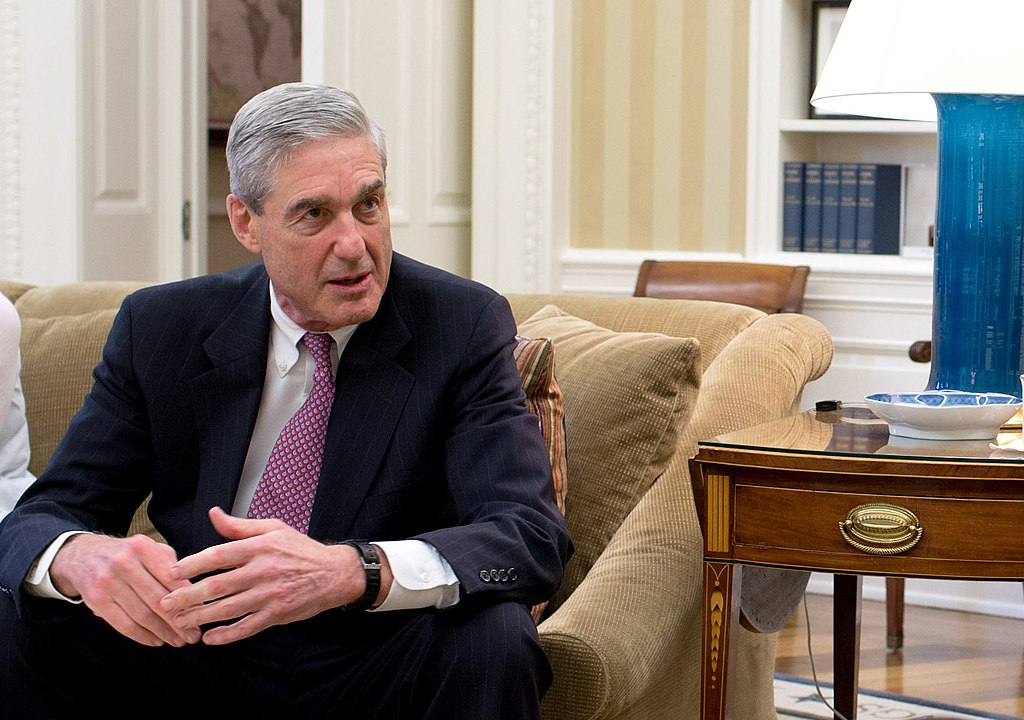Alter the Committee Hearing Format for Mueller’s Testimony
On July 17, former Special Counsel Robert Mueller will testify before the House Judiciary Committee and the House Intelligence Committee.

Published by The Lawfare Institute
in Cooperation With

On July 17, former Special Counsel Robert Mueller will testify before the House Judiciary Committee and the House Intelligence Committee. Democrats, anxious not to set unrealistic expectations, will likely use Mueller’s appearance to highlight the contents of the Mueller report and may attempt to shed light on related topics as well. Key Republicans like Rep. Jim Jordan and House Intelligence Committee Ranking Member Devin Nunes have indicated their intent to dig into alternative theories about what they see as the politically tainted origins of the Russia investigation.
Which narrative will be more convincing? It’s difficult to say, particularly when the questioning of Mueller will be chopped up into five-minute increments, back and forth from Democrats to Republicans. On Capitol Hill, members’ questioning of witnesses in committee hearings almost always proceeds this way. And for hearings where there is a fair amount of agreement on the issues—which is most hearings—this format works perfectly well.
But for hearings highly polarized along party lines, this alternating format disrupts the hearing’s flow and, arguably, its usefulness. Rather than focusing on developing a line of questioning in a way that is meaningful and understandable to those watching, members feel compelled to respond to the other side’s attempt to score political points. Hearings become stilted and bizarre. Witnesses painfully lurch back and forth in responding to friendly or hostile fire. Viewers are left struggling to understand what’s important and persuasive.
For Mueller’s upcoming hearings, Congress should consider trying something different. Chairman of the House Judiciary Committee Jerry Nadler and Chairman of the House Intelligence Committee Adam Schiff could first recognize all of the Democratic members to question Mueller, then recognize all of the Republican members. This would involve calling on the members of each party serially, in two separate blocs, and would allow each party to develop its own line of questioning in full.
There is recent precedent for committees altering the format for questioning witnesses. For example, Republicans on the Senate Judiciary Committee last year employed a substitute—Arizona state prosecutor Rachel Mitchell—to ask questions of Christine Blasey Ford about her sexual assault in the hearings to consider the nomination of Brett Kavanaugh for the Supreme Court. Employing a substitute questioner did not help develop a cohesive narrative, though. The questioning alternated, haltingly, between Democratic members of the committee and Mitchell (to whom Republicans yielded their five-minute increments). At one point an exasperated Mitchell asked rhetorically, referring to interviewing victims of sexual assault, “Would you believe me that no study says that this setting in five-minute increments is the way to do that?”
Of course, the Kavanaugh hearing took place in the Senate, not the House. But altering the hearing format for Mueller’s testimony could be done without any changes to the House rules or the rules of either of the relevant committees.
Rules for questioning witnesses in committees are enshrined, in varying degrees of specificity, in rules each committee adopts at the beginning of a two-year Congress. The rules of the House Judiciary Committee state only that “[i]n the course of any hearing each Member shall be allowed five minutes for the interrogation of a witness until such time as each Member who so desires has had an opportunity to question the witness.” While this does require that each member gets five minutes for questions, it says nothing about how members should be ordered by party affiliation. And the rules of the House Intelligence Committee state only that “questioning of witnesses before the Committee shall be conducted by members or appropriate designated Committee staff” and “the Chair and Ranking Minority Member are each authorized to designate appropriate Committee Staff to conduct such questioning.”
Committee rules must also be consistent with the more general rules of the House of Representatives, which are adopted at the beginning of each Congress. The House rules state that:
Subject to subdivisions (B) and (C), each committee shall apply the five-minute rule during the questioning of witnesses in a hearing until such time as each member of the committee who so desires has had an opportunity to question each witness.
(B) A committee may adopt a rule or motion permitting a specified number of its members to question a witness for longer than five minutes. The time for extended questioning of a witness under this subdivision shall be equal for the majority party and the minority party and may not exceed one hour in the aggregate.
(C) A committee may adopt a rule or motion permitting committee staff for its majority and minority party members to question a witness for equal specified periods. The time for extended questioning of a witness under this subdivision shall be equal for the majority party and the minority party and may not exceed one hour in the aggregate.
The “five-minute rule” referenced here is not specifically defined. Traditionally, the rule is understood as part of the process of debate during consideration of amendments to legislation. The author of an amendment is recognized for five minutes, followed by recognition of a member who wishes to speak in opposition for five minutes. Other members may be recognized in five-minute increments.
But this would not create problems for Schiff and Nadler should they wish to change the hearing format next week. In a hearing, witnesses are not treated as something members are for or against—so the for-and-against aspect of the five-minute rule is not applicable in this context. In short, nothing in these rules would preclude a chair from deciding to call on members in whatever order he or she wishes.
Changing the format of a Capitol Hill hearing can be controversial, of course. In April, NBC News reported that Attorney General William Barr decided not to testify before the House Judiciary Committee because of concerns about the hearing’s format—the committee had planned to have its lawyers question Barr following the regular five-minute increments by members. Barr did not testify and was held in civil contempt by the House on June 11 for defying a duly-authorized subpoena.
There is no reason to believe that Mueller would mutiny in such a way, however. My proposal is arguably more modest than what the Judiciary Committee had in mind for Barr. Some may be concerned that the majority party gets an advantage by shaping the discussion first and leaving the minority party in reaction mode, or that the majority does not have a meaningful chance to rebut the minority narrative. But altering the hearing format in this way may be worth it in this instance, and it may even be possible to get the ranking members of the relevant committees to agree to it as a courtesy. The advantage for Republicans is that they would have an equal opportunity to develop their narrative in an equally sustained—rather than disjointed—way.
Capitol Hill hearings—particularly high-profile ones like the Mueller testimony—are supposed to be a vehicle for the American public to understand what is going on inside their government. The best way to achieve this in the Mueller hearings is to allow both sides to develop their own lines of questioning in full.




